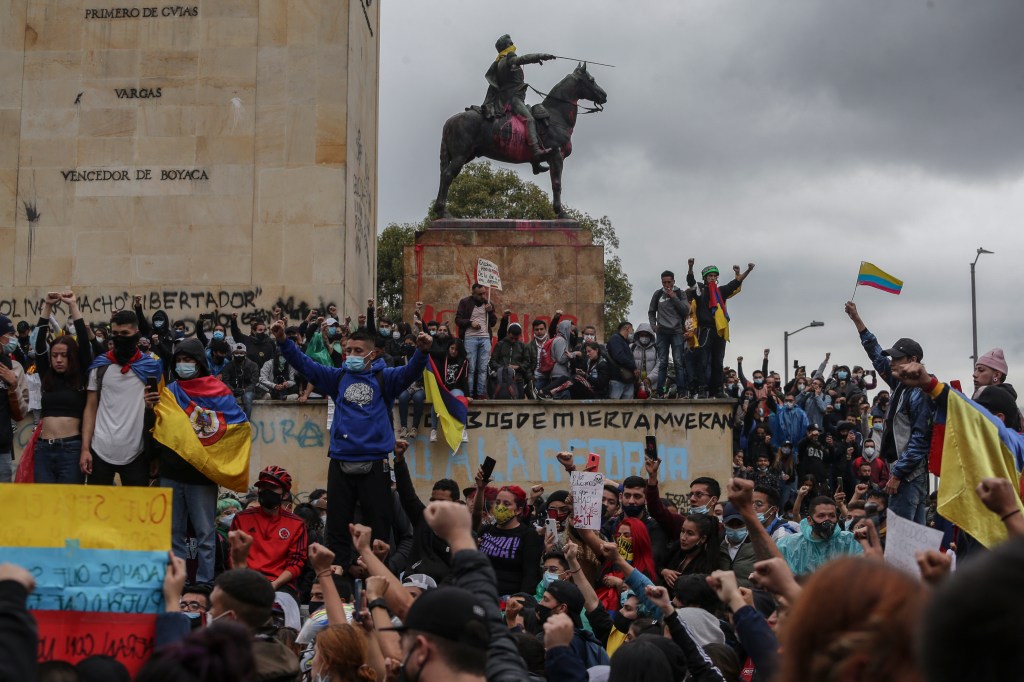In Colombia, journalists covering mass protests have been robbed, harassed, and injured; nearly half of the violations against journalists were allegedly committed by the National Police and its Mobile Anti-Riot Squad, according to the Bogotá-based Foundation for Press Freedom (FLIP). More information can be found in our safety advisory for journalists reporting on unrest in the country.
Meanwhile, in Israel and the Occupied Palestinian Territory, Israeli air strikes destroyed buildings that housed more than a dozen media outlets in Gaza City. In Jerusalem, Israeli security forces injured at least eight journalists covering clashes at Jerusalem’s Temple Mount complex and at the Al-Aqsa Mosque. Find resources on covering the conflict in our latest safety advisory.
Global press freedom updates
- Mexican reporter Benjamín Morales shot and killed in Sonora
- Iraqi journalist Ahmed Hassan shot, critically wounded
- In Burkina Faso, Spanish journalist killings underscore broader dangers to the press
- Iran detained at least eight Kurdish journalists starting in mid-2020; three remain behind bars
- Uzbek blogger Otabek Sattoriy sentenced to 6.5 years in prison
- CPJ calls for immediate release of kidnapped French journalist Olivier Dubois in Mali
- Police detain, fine two journalists over corruption reporting in Russian Republic of Tatarstan
- Reporting crew for Mtavari Arkhi broadcaster attacked, harassed in Georgia
- Unidentified attacker beats Epoch Times journalist with bat in Hong Kong
- Algerian authorities briefly detain at least six journalists covering protests
- CPJ joins call for Mauritius to reject proposed changes to the country’s Information and Communication Technologies Act that threaten online speech; In a separate global legal development, Ecuadorian congress passes ‘digital violence’ bill threatening press freedom
- CPJ calls on Thailand not to deport detained Democratic Voice of Burma (DVB) reporters to Myanmar. Separately, Myanmar sentences DVB reporter Min Nyo to 3 years in prison for criminal mutiny
- In wake of Washington Post subpoena revelations, CPJ calls on Biden administration to commit to source protection; Separately in the US, Idaho attorney files subpoena for testimony of reporter Nate Eaton
Spotlight
Internet shutdowns, even brief ones, potentially impede people’s access to information and journalists’ ability to report the news, as CPJ found in a recent feature interviewing journalists in Ethiopia, Kashmir, and Myanmar. Preparedness is key for journalists facing the threat of internet shutdowns, which is why CPJ Emergencies provides safety guidance on what journalists can do before, after, and during internet shutdowns. Be sure to bookmark our safety advice.
Did you miss our events this week? Watch CPJ’s roundtable discussion “The Weight of it All: Reporting from the Frontline of the Pandemic,” here. Separately, CPJ’s Middle East and North Africa senior researcher, Justin Shilad, joined a discussion hosted by the Middle East Institute this week on “Censorship, Surveillance, and Imprisonment: Media Under Threat in the Middle East.” Watch the panel discussion here.
What we are reading
- In India, social media is a lifeline. It’s being silenced. — Francesca Recchia and Suchitra Vijayan, The Washington Post
- The Chilling: The biggest issue in world press freedom is attacks on women journalists — Glenda Daniels, The Daily Maverick
- The COVID Reporters Are Not Okay. Extremely Not Okay. — Olivia Messer, Study Hall
- Does Freedom of the Press Extend to Covering Police in Ohio? — Lucia Walinchus, Marisa Twigg and Jaelynn Grisso , CleveScene
